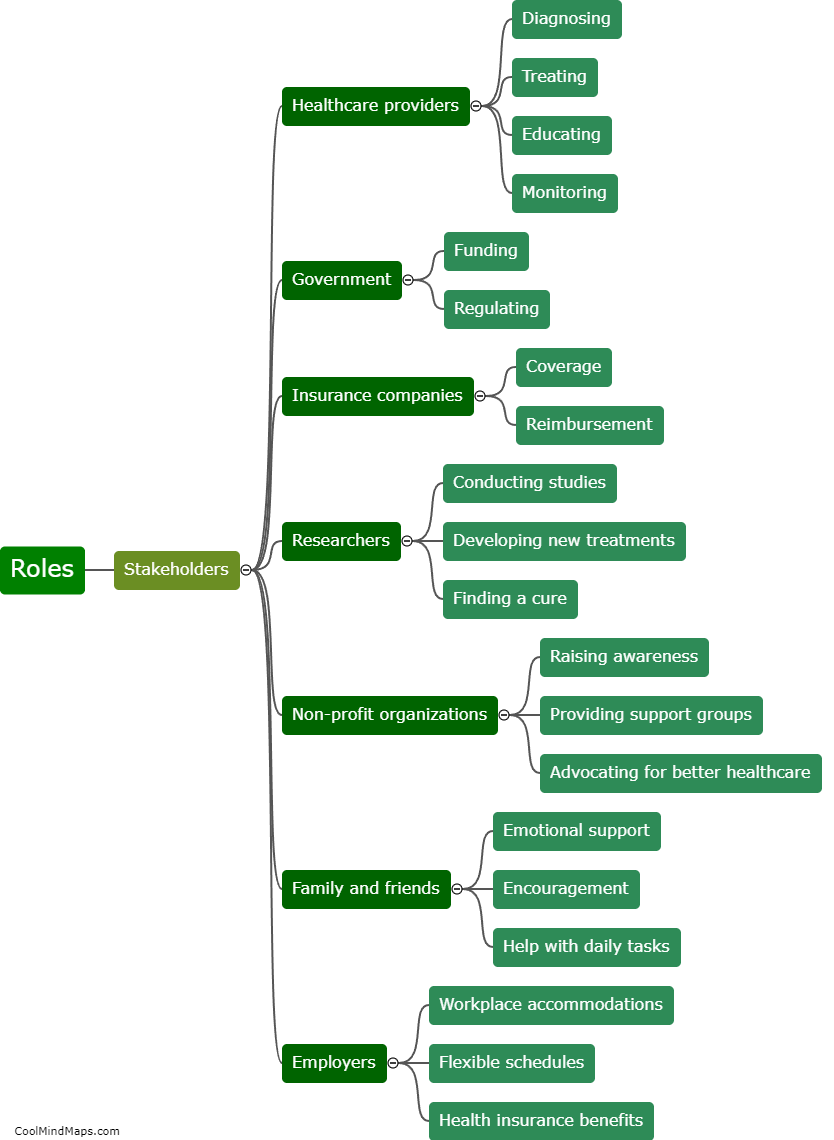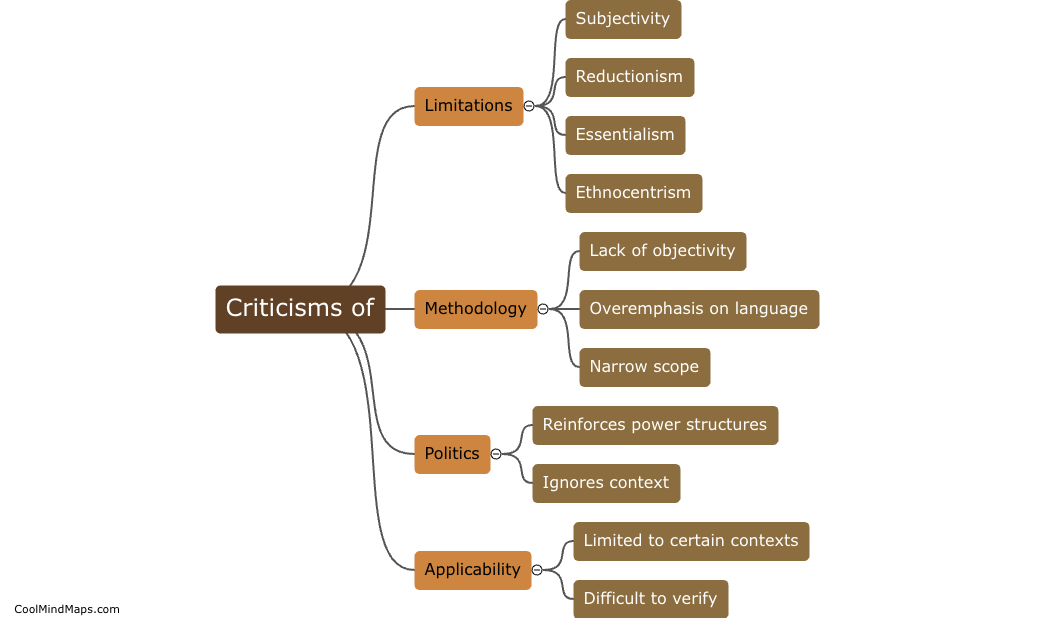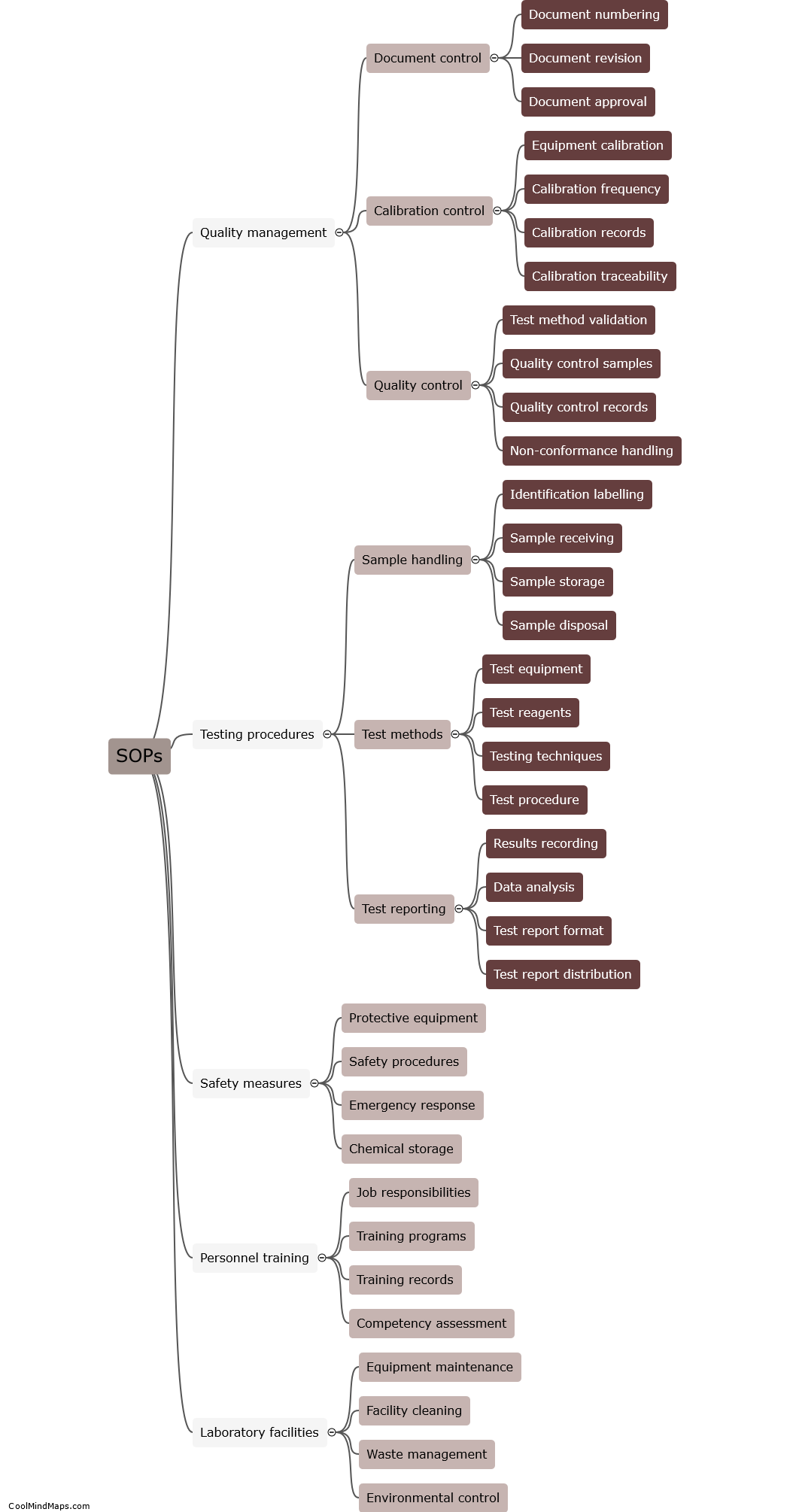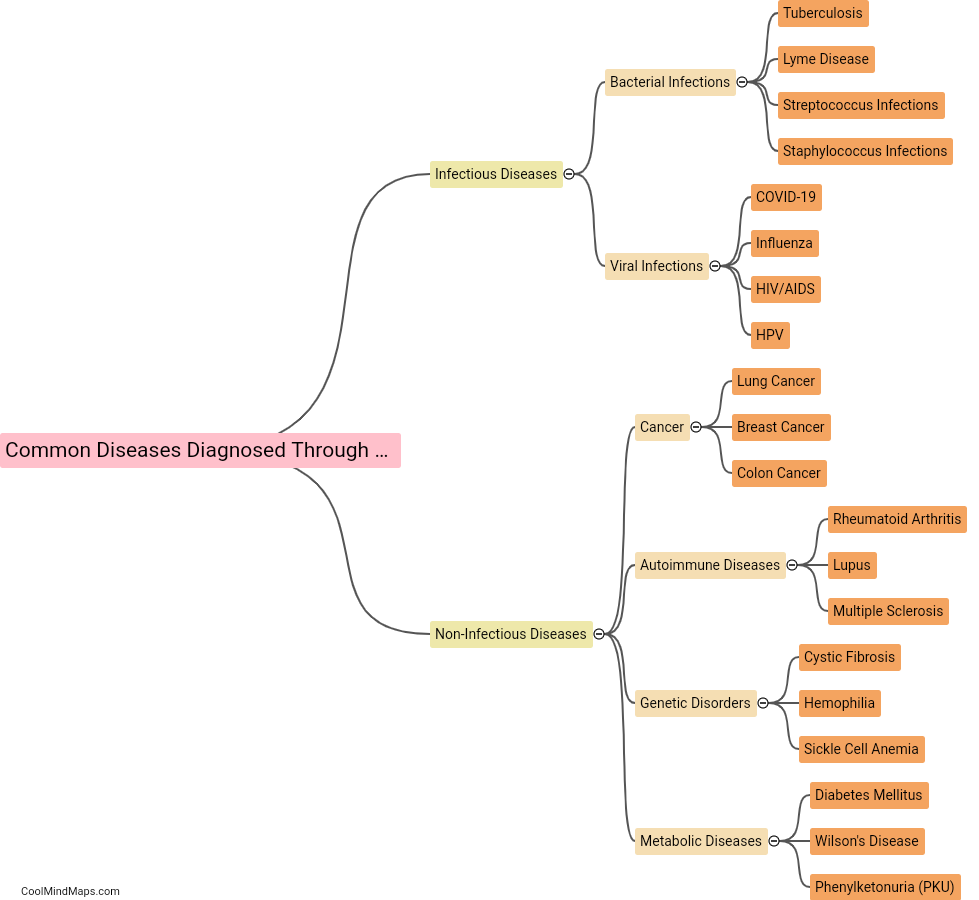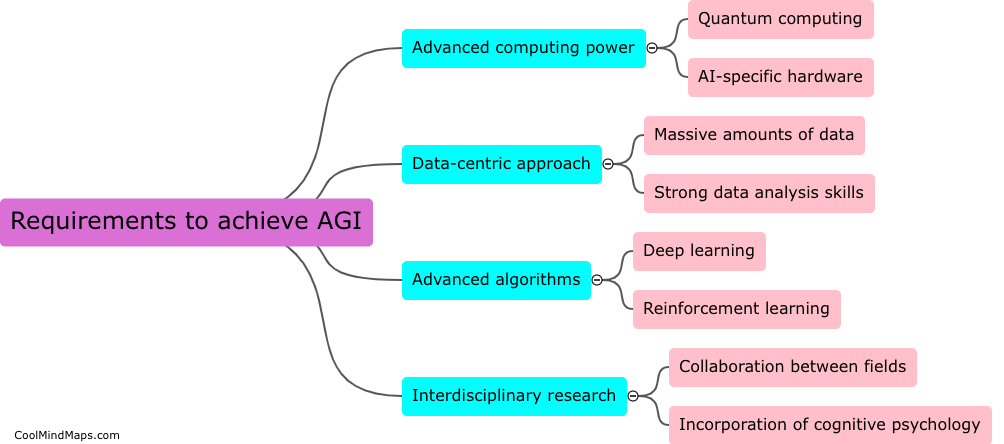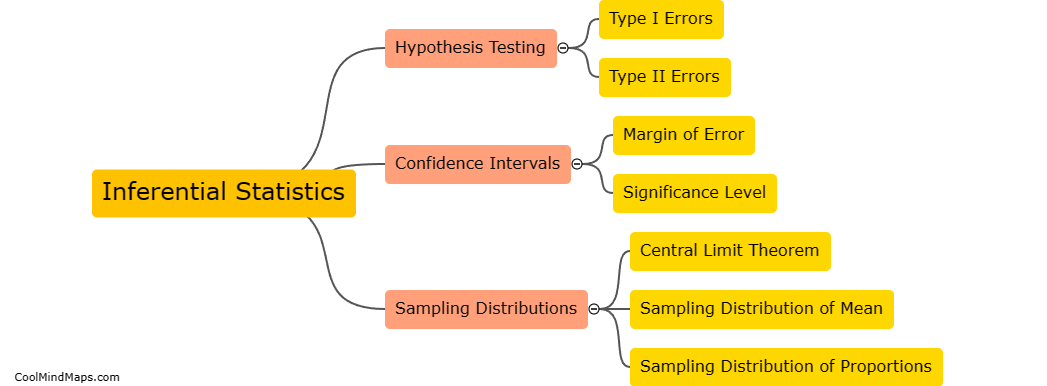What are the functions of each organ?
Every organ in the body plays a critical role in maintaining overall health and wellbeing. For example, the heart's main function is to pump blood and circulate oxygen throughout the body while the lungs are responsible for oxygenating the blood and removing carbon dioxide. The kidneys filter waste products from the blood and maintain the body's fluid balance, while the liver metabolizes nutrients and toxins. The stomach digests food and the intestines absorb nutrients, and the brain controls all bodily functions and cognitive abilities. Each organ has a specific function that contributes to the body's overall health and functioning.
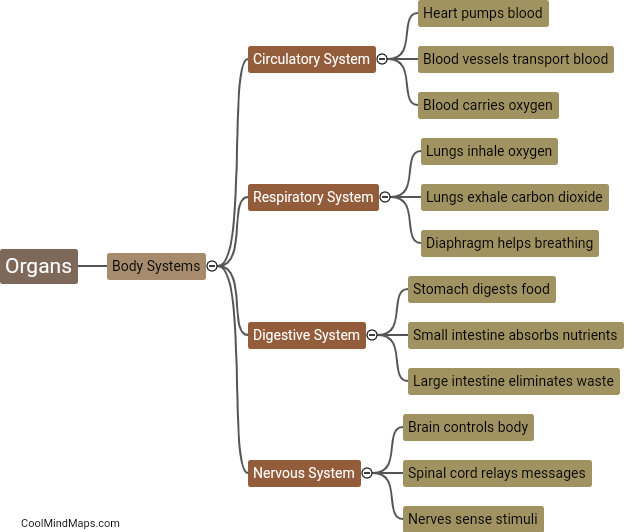
This mind map was published on 17 May 2023 and has been viewed 100 times.
